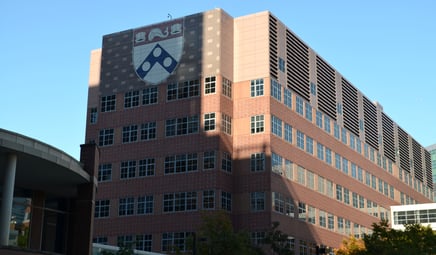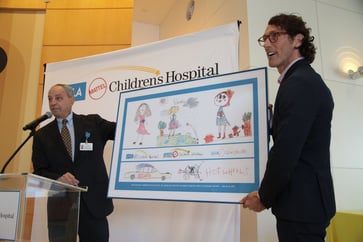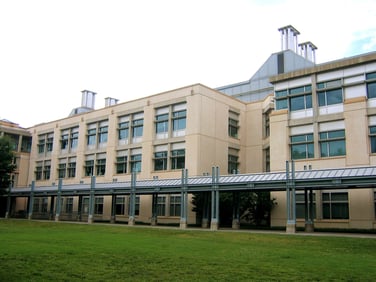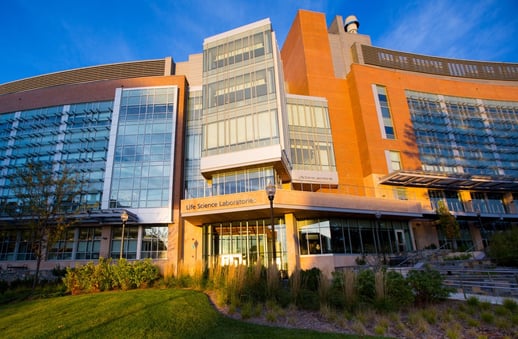Pelotonia is a grassroots bike tour with one goal: end cancer. In eight years Pelotonia has raised $130 million in new research funding for The Ohio State University Comprehensive Cancer Center at Arthur G. James Cancer Hospital and Richard J. Solove Research Institute (OSUCCC-James).
Read MoreRecent Posts
So far in 2017 the National Institute on Health has awarded the University of Pittsburgh over $113M in research project grants. This funding supports 296 separate projects. The top six grants were awarded to the university’s School of Medicine.
Read MoreTags: University of Pittsburgh, Bioresearch funding, UPITT, NIH funded Research Projects, BioResearch Product Faire Event, Lab Product Sales, lab products, BioResearch Product Faire, Liver disease, NIH awards 2017, 2017 research funding, Xenograft study
The University of Pennsylvania was established in 1740. It became the home to the nation’s first hospital and medical school, which were both founded by Benjamin Franklin. Now a new chapter in Penn Medicine’s history is about to begin. Construction of the New Patient Pavilion started in September of 2016. This new 13-story medical building will include 500 inpatient rooms as well as a relocated and expanded Emergency Department.

(Image of UPenn Research Building courtesy of Wikimedia Commons)
Read MoreTags: University of Pennsylvania, UPenn, increase laboratory product sales, Lab Product Sales, new medical buildings, general lab supply
In 1998 Mattel’s gift of $25 million made the construction of the UCLA Mattel Children’s Hospital possible. In March 2017 Mattel made a $50M commitment to the UCLA Foundation to expand the hospital’s pediatric services. Over the last 20 years, Mattel has provided more than $80 million to UCLA’s health care system to support its Children’s Hospital.

(Image of Dr. John Mazziotta, vice chancellor of UCLA Health Sciences and Richard Dickson, president of Mattel, announcing the $50 million gift courtesy of UCLA Newsroom)
Read MoreTags: LAVS, UCLA, Lab Product Sales, UC Los Angeles, BioResearch Product Faire, 2017 research funding, UCLA hospital
Each year, Duke's Department of Medicine receives more than $130 million in federal research grants to fund basic, clinical, and transnational research. For the fiscal year 2015-2016 Duke University also received over $180 in private donations from individuals and various foundations to support their lifesaving research. An example of their success is a recent study conducted by Duke University researchers that may save patients with atrial fibrillation (A-fib) from suffering from strokes.

(Image of Duke's Levine Science Research Center courtesy of Wikimedia Commons)
Read MoreTags: cardiovascular research, Duke University, sell lab products, Research Funding, laboratory equipment, Duke University Health System, BioResearch Product Faire, duke medicine, stroke research, general lab supply, 2017 research funding
For the 2016 fiscal year budget, and Congress increased government funding on research for Alzheimer's by $350 million. That was a 50% increase over the previous year. The Alzheimer’s Association estimates that the National Institutes of Health would need $2 billion a year to maximize the chances of curing or preventing the disease by 2025. This year’s increase puts the NIH on track to reach that goal. Alzheimer's Disease is the most common form of dementia and this increased science research funding it is already beginning to pay off.
Read MoreTags: biomedical sciences, Bioresearch funding, Alzheimer's Research, Alzheimer' Research, Rutgers University, Rutgers, BioResearch Product Faire, dementia research, Biotechnology trade show
When it comes to research the University of Minnesota has a lot going for it. Their 4,000 faculty include members of the National Academy of Sciences, the National Academy of Engineering, and the Institute of Medicine, as well as the American Academy of Arts and Sciences. U of M ranks 8th among public universities in research spending, with more than $870 million spent annually. In 2016, over $243M of that research funding was awarded by the National Institute of Health.
Read MoreTags: sell lab equipment, University of Minnesota Twin Cities, UMinn, Lab Product Sales, BioResearch Product Faire, uminn research, NIH awards 2017
The Institute for Applied Life Sciences (IALS) at University of Massachusetts, Amherst is now fully operational and open for use by UMass faculty researchers as well as its industry and academic partners.

(Image Courtesy of University of Massachusetts, Amherst)
The institute was first established in 2014 through a $95 million grant from the Massachusetts Life Sciences Center (MLSC). Mass invested an additional $55 million in toward the construction and fit-out of the Life Sciences Laboratories building. This building is designed for interdisciplinary research, student training and large-equipment facilities. IALS also fosters spin-out companies and seeks to become a catalyst for a biotechnology hub in Western Massachusetts.
Read MoreTags: University of Massachusetts Amherst, life sciece markets, Life Science, Amherst, UMASS, life science labs, life science institute
Thus far in 2017, the University of California Los Angeles has received over $6.8 million in funding from the National Heart Lung and Blood Institute (NHLBI). This funding has been awarded through multiple grants intended to support cardiovascular research.
Read MoreTags: University of California Los Angeles, cardiovascular research, increase laboratory product sales, UCLA, NIH funding, life science research at UCLA, life science solutions, science solutions, NIH awards 2017
The National Institute of Health (NIH) awarded Washington University in St. Louis over $1.4 million in grant funding to support their School of Medicine’s Diabetic Research Center. This award was administered through the National Institute of Diabetes and Digestive and Kidney Diseases (NIDDK) as it has been for the last 38 years. The funding will help support the Diabetic Research Center (DRC) and their life science labs. The DRC's mission is to “support and enhance research in diabetes and related metabolic diseases” through Biomedical Research Core services as well as the Pilot and Feasibility Program.
Read MoreTags: Washington University St. Louis, Bioresearch funding, Biotechnology vendor show, Washington University, WUSTL, Diabetes, NIH award, life scinece, life science labs, Biotechnology trade show

